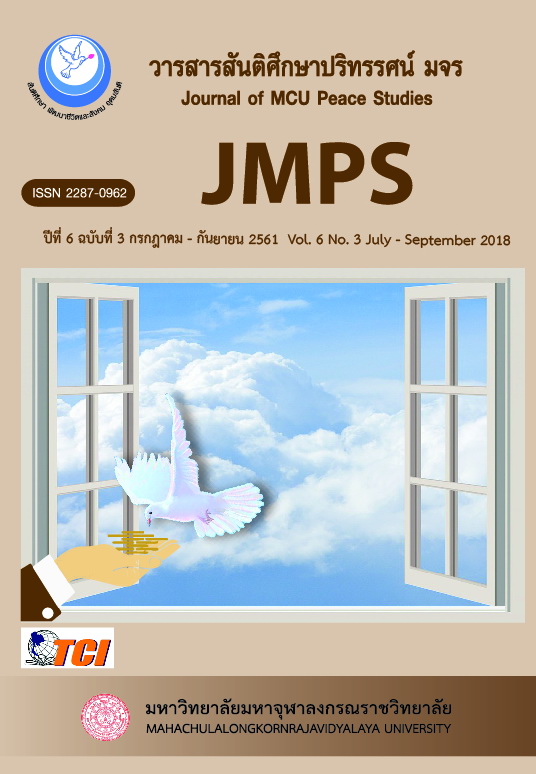Knowledge Management Model of Development Monks in the Northeast
Main Article Content
บทคัดย่อ
This investigation uses a qualitative research methodology. The aims of the investigation are 1) to study the background of the Buddhist monks in Northeastern Thailand; 2) to study the knowledge management of Buddhist monks in Northeastern Thailand; and 3) to study a knowledge management model of development monks (monks charged with building community stability) in Northeastern Thailand. The research methods used in gathering data were interview, observation and group discussion. Data was gathered from three groups of purposively selected respondents: 20 key informants, 30 casual informants and 20 general informants. Research was conducted from August 2017 to October 2017 in five provinces, which were Nakhon Ratchasima. Roi Et, Amnat Charoen, Yasothon and Surin. The data obtained was verified by means of data triangulation. The research found there are groups of monks who work in the communities as local developers. More than half are Buddhist monks who are born and raised in the community where their temples are located. Each developer is from a moderately wealthy family in the community, has enough to eat and experiences very few personal problems in life. Most of the monks are ordained according to the traditions observed by their parents. The results revealed that the developers use their principles to develop a stable society. They help promote peace with the use of Buddhist principles, especially the core precepts, meditation and wisdom. Their work always starts with the development of people to have the knowledge and ability to work. They aim to development villages and schools to be stable and sustainable societies. The principles of operation for the developed societies are the pursuit of knowledge, the construction of knowledge, knowledge storage and knowledge dissemination. The monks are also responsible for the restoration and preservation of the status of Buddhist institutions. The Buddhist monks can be relied on by the community because they represent the moral and ethical issues of Buddhists. These Buddhist monks are undertaking a mission to restore the social security and status of communities that have been damaged by materialism and consumerism. By incorporating local traditional knowledge into their everyday activities and teaching, they also act as agents of conservation for Thai customs and culture.
Article Details
ทัศนะและความคิดเห็นที่ปรากฏในบทความในวารสาร ถือเป็นความรับผิดชอบของผู้เขียนบทความนั้น และไม่ถือเป็นทัศนะและความรับผิดชอบของกองบรรณาธิการ ยินยอมว่าบทความเป็นลิขสิทธิ์ของวารสาร

